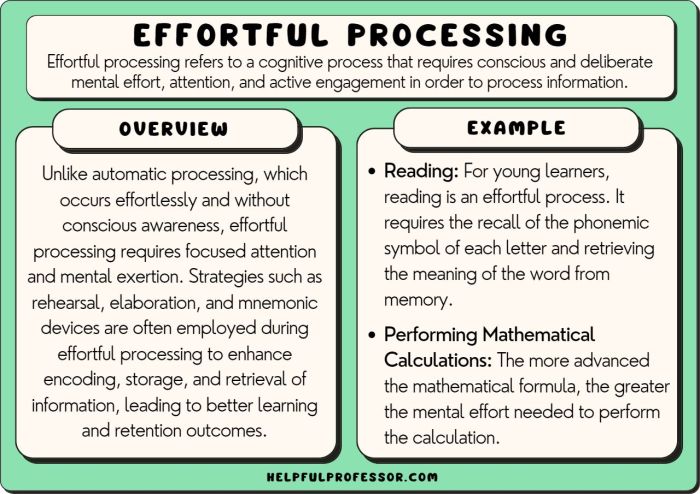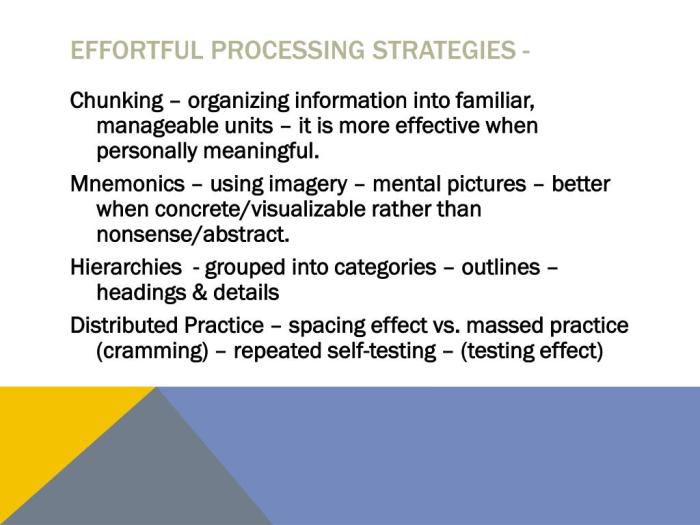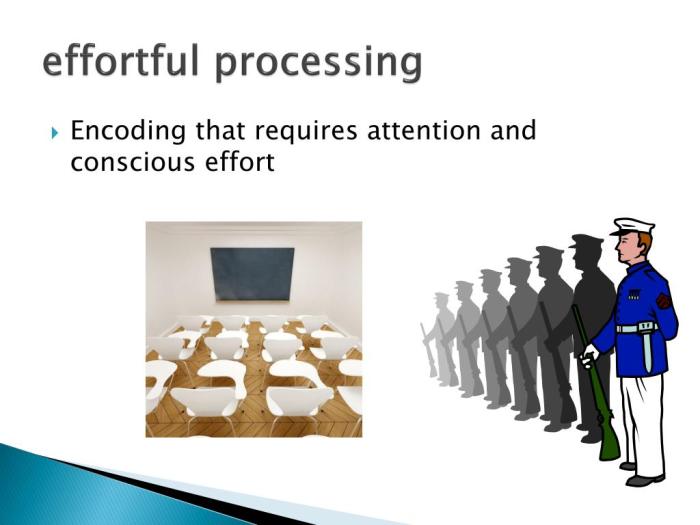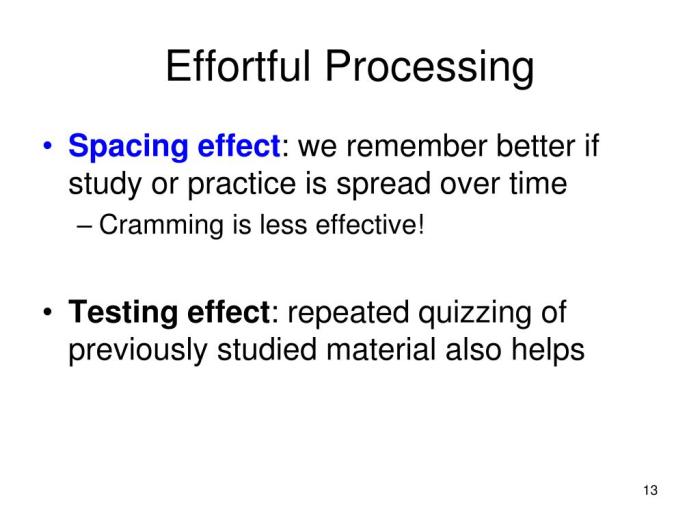Effortful processing can occur only with the engagement of attention, encoding, and retrieval processes. It plays a crucial role in cognitive functions such as memory consolidation, long-term memory retrieval, skill acquisition, and cognitive control. This article explores the concept of effortful processing, its limitations, and its implications for various cognitive processes.
Cognitive Processes

Effortful processing is a type of cognitive processing that requires attention and conscious effort. It is in contrast to automatic processing, which occurs without conscious effort. Effortful processing is essential for tasks that require complex thought, such as problem-solving, decision-making, and learning.Attention
plays a critical role in effortful processing. When we pay attention to something, we are allocating cognitive resources to it. This allows us to focus on the task at hand and to ignore distractions. Attention is also essential for encoding information into memory.Effortful
processing has several limitations. First, it is limited by the amount of attention that we can pay to a task. Second, it is limited by the amount of time that we can spend on a task. Third, it is limited by the amount of cognitive resources that we have available.
Memory and Learning
Effortful processing enhances memory consolidation. This is the process by which memories are stored in the brain. When we engage in effortful processing, we are more likely to remember information later on.Effortful processing also improves long-term memory retrieval. This is the process by which we access memories that have been stored in the brain.
When we engage in effortful processing, we are more likely to be able to retrieve memories later on.Effortful processing plays a role in skill acquisition. When we learn a new skill, we must engage in effortful processing in order to master the skill.
This is because we need to pay attention to the task, to focus on the steps involved, and to practice the skill repeatedly.
Cognitive Control, Effortful processing can occur only with
Effortful processing plays a role in cognitive control. Cognitive control is the ability to control our thoughts and actions. It allows us to resist distractions, to inhibit inappropriate responses, and to make decisions.Effortful processing is supported by a network of brain regions, including the prefrontal cortex, the anterior cingulate cortex, and the basal ganglia.
These regions work together to control our thoughts and actions.Effortful processing has implications for executive function. Executive function is a set of cognitive skills that allow us to plan, organize, and execute our actions. Effortful processing is essential for executive function, as it allows us to control our thoughts and actions in order to achieve our goals.
Motivation and Effort
Motivation influences effortful processing. When we are motivated to achieve a goal, we are more likely to engage in effortful processing. This is because motivation provides us with the energy and drive to overcome the challenges of effortful processing.Reward and punishment can also influence effortful processing.
When we are rewarded for engaging in effortful processing, we are more likely to continue to engage in it. Similarly, when we are punished for engaging in effortful processing, we are less likely to continue to engage in it.Effortful processing has an impact on task performance.
When we engage in effortful processing, we are more likely to perform better on tasks. This is because effortful processing allows us to focus on the task at hand, to ignore distractions, and to make better decisions.
General Inquiries: Effortful Processing Can Occur Only With
What is effortful processing?
Effortful processing is a type of cognitive processing that requires conscious effort and attention to perform. It is typically used to encode and retrieve information into long-term memory.
What are the limitations of effortful processing?
Effortful processing is limited by the amount of attentional resources available. It can be impaired by factors such as fatigue, distraction, and cognitive overload.
How does effortful processing enhance memory consolidation?
Effortful processing helps to consolidate memories by strengthening the neural connections between neurons involved in the encoding and retrieval of information.


